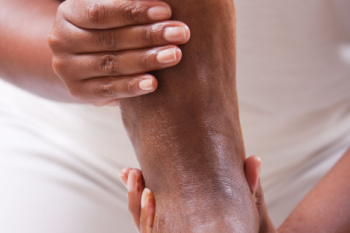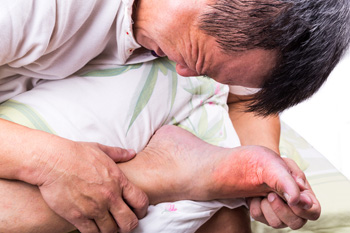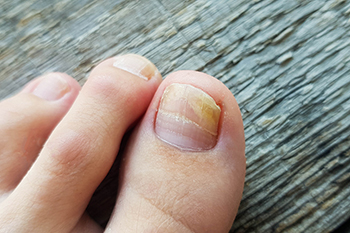- Home
- Our Doctors
- Our Offices
- New Patients
- Patient Education
- Blog
- Contact Us
- Patient Portal Help

Treat your feet with the care they deserve to keep them healthy and strong. Routine foot maintenance is key. Wash and moisturize feet daily, trim nails carefully, and check for any signs of trouble like redness, swelling, or pain. Stretching is equally important. Simple exercises like toe stretches, ankle rolls, and calf stretches improve flexibility, boost circulation, and reduce tension. Wearing proper shoes makes all the difference. Choose supportive, well-fitted footwear with ample cushioning to protect your feet from strain and injury. Avoid overly tight or worn-out shoes that can lead to blisters, bunions, or more serious problems. For expert guidance, regular visits to a podiatrist are suggested. This type of doctor can assess your foot health, provide personalized advice, and treat any foot injuries or conditions.
Everyday foot care is very important to prevent infection and other foot ailments. If you need your feet checked, contact one of our podiatrists from Foot & Ankle Institue. Our doctors can provide the care you need to keep you pain-free and on your feet.
Everyday Foot Care
Often, people take care of their bodies, face and hair more so than they do for their feet. But the feet are a very important aspect of our bodies, and one that we should pay more attention to. Without our feet, we would not be able to perform most daily tasks.
It is best to check your feet regularly to make sure there are no new bruises or cuts that you may not have noticed before. For dry feet, moisturizer can easily be a remedy and can be applied as often as necessary to the affected areas. Wearing shoes that fit well can also help you maintain good foot health, as well as making it easier to walk and do daily activities without the stress or pain of ill-fitting shoes, high heels, or even flip flops. Wearing clean socks with closed shoes is important to ensure that sweat and bacteria do not accumulate within the shoe. Clean socks help to prevent Athlete’s foot, fungi problems, bad odors, and can absorb sweat.
If you have any questions please feel free to contact one of our offices located in St. George, Hurricane, and Cedar City, UT and Mesquite, NV . We offer the newest diagnostic and treatment technologies for all your foot and ankle needs.

While often associated with men, gout can affect women too, especially after menopause. Gout is a form of arthritis caused by high levels of uric acid in the blood, leading to painful crystals forming in the joints, particularly in the big toe. Estrogen, which helps regulate uric acid, declines post-menopause, increasing women’s risk of gout. Other factors like high blood pressure, obesity, and a diet rich in purines, found in red meat, shellfish, and alcohol, can also raise uric acid levels. Gout attacks come on suddenly, causing intense pain, redness, and swelling in the affected joint. Managing gout involves drinking plenty of water, avoiding purine-rich foods, and maintaining a healthy weight. If you have gout flare-ups, it is suggested that you visit a podiatrist who may prescribe medications to lower uric acid or relieve pain.
Gout is a painful condition that can be treated. If you are seeking treatment, contact one of our podiatrists from Foot & Ankle Institue. Our doctors will treat your foot and ankle needs.
What Is Gout?
Gout is a form of arthritis that is characterized by sudden, severe attacks of pain, redness, and tenderness in the joints. The condition usually affects the joint at the base of the big toe. A gout attack can occur at any random time, such as the middle of the night while you are asleep.
Symptoms
Risk Factors
Prior to visiting your podiatrist to receive treatment for gout, there are a few things you should do beforehand. If you have gout you should write down your symptoms--including when they started and how often you experience them, important medical information you may have, and any questions you may have. Writing down these three things will help your podiatrist in assessing your specific situation so that he or she may provide the best route of treatment for you.
If you have any questions, please feel free to contact one of our offices located in St. George, Hurricane, and Cedar City, UT and Mesquite, NV . We offer the newest diagnostic and treatment technologies for all your foot care needs.

Toenail fungus, also known as onychomycosis, is a fungal infection that affects the nails, typically starting at the tip and spreading deeper into the nail. The primary cause is exposure to fungi, which thrive in warm, moist environments such as public showers or pools. Toenail fungus is more common in individuals with weakened immune systems, poor circulation, or those who wear tight, non-breathable shoes. Symptoms include thickened nails, discoloration, crumbling edges, and sometimes a foul odor. The nail may become detached from the nail bed in severe cases. Diagnosis is usually made through a physical examination, and a sample of the infected nail may be taken for laboratory testing, such as a fungal culture or nail biopsy, to confirm the presence of the fungus. If you have symptoms of toenail fungus, it is suggested that you promptly schedule an appointment with a podiatrist who can accurately diagnose and treat this condition, which may include prescribed medication.
If left untreated, toenail fungus may spread to other toenails, skin, or even fingernails. If you suspect you have toenail fungus it is important to seek treatment right away. For more information about treatment, contact one of our podiatrists of Foot & Ankle Institue. Our doctors can provide the care you need to keep you pain-free and on your feet.
Symptoms
Treatment
If self-care strategies and over-the-counter medications does not help your fungus, your podiatrist may give you a prescription drug instead. Even if you find relief from your toenail fungus symptoms, you may experience a repeat infection in the future.
Prevention
In order to prevent getting toenail fungus in the future, you should always make sure to wash your feet with soap and water. After washing, it is important to dry your feet thoroughly especially in between the toes. When trimming your toenails, be sure to trim straight across instead of in a rounded shape. It is crucial not to cover up discolored nails with nail polish because that will prevent your nail from being able to “breathe”.
In some cases, surgical procedure may be needed to remove the toenail fungus. Consult with your podiatrist about the best treatment options for your case of toenail fungus.
If you have any questions, please feel free to contact one of our offices located in St. George, Hurricane, and Cedar City, UT and Mesquite, NV . We offer the newest diagnostic and treatment technologies for all your foot care needs.
Having issues or need help with your portal?
Click here for Instructional Videos